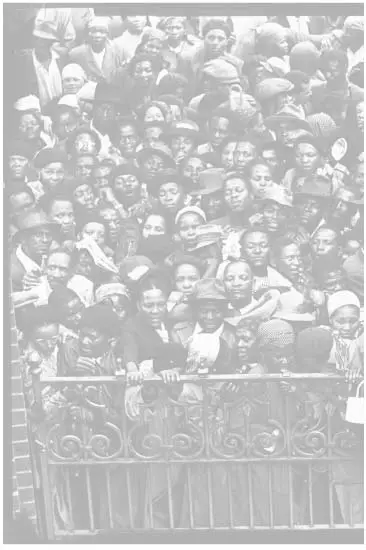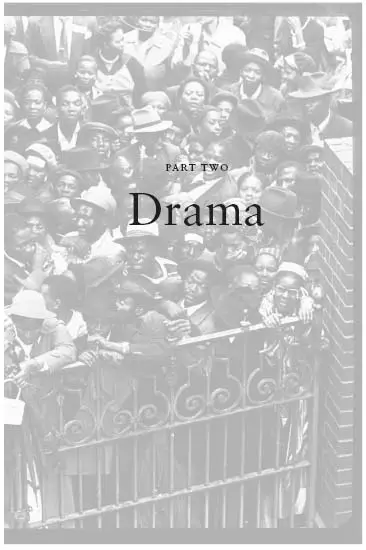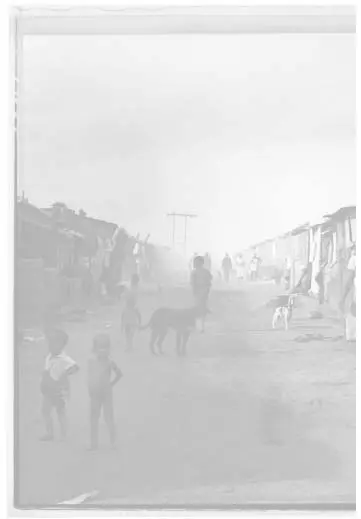At College I had come to believe that as a graduate I would automatically be at the head, leading my people in all their efforts. In a sense that was true of the majority of the Fort Hare students. Many of them left the lecture room straight to some cosy job, with a steady income and carrying a measure of influence. It is also true that graduates do enjoy the respect of the community especially in the field of education.
But my experience was quite different. I moved in circles where common sense and practical experience were important, and where high academic qualifications were not necessarily decisive. Hardly anything I had been taught at College seemed directly relevant in my new environment. The average teacher had fought shy of topics like racial oppression, lack of opportunity for the black man and the numerous indignities to which he is subjected in his daily life. None had ever briefed me on how we would finally remove the evils of colour prejudice, the books I should read in this connection and the political organisations I should join if I wanted to be part of a disciplined freedom movement. I had to learn all these things by mere chance and through trial and error.


Nelson Mandela once played the part of John Wilkes Booth, the assassin of Abraham Lincoln, in a play performed at Fort Hare. He played the tyrant Creon when the prisoners put on Antigone on Robben Island. Ahmed Kathrada had ordered a whole lot of Greek plays ostensibly for his studies – these did not evoke any curiosity among the warders, so were allowed to come in without any problems. Playing the villain no doubt appealed to Mandela’s wicked sense of humour. He sometimes quotes from Shakespeare and has a taste for Greek tragedy, which he first read on the Island. He joked at one time about being an actor and, during the years of his political apprenticeship, he learned the power of the dramatic gesture.
Indeed, his life from 1941 until his incarceration in 1962 was one of great public drama. From the late 1940s he began to assume leadership positions in the African National Congress (ANC), and through the 1950s and into the 1960s he participated prominently in every national campaign and event in the struggle against apartheid. By the time of his capture in August 1962, he was the leader of Umkhonto we Sizwe (MK) – the armed wing of the ANC – and arguably the most popular and well-known figure in the anti-apartheid struggle. He had become ‘The Black Pimpernel’, South Africa’s most wanted man.
Not surprisingly, in the 1963–64 Rivonia Trial, the most dramatic and significant political trial in South Africa’s history, Mandela stole the show.
His personal drama heightened when, after a couple of passing affairs, he married a young relative of Walter Sisulu, Evelyn Mase, in 1944. They had four children: a daughter, Makaziwe (Maki); two sons, Madiba Thembekile (Thembi) and Makgatho (Kgatho); and another daughter – their first, also named Makaziwe – who died aged just nine months. After a dozen years of marriage they separated with bitterness and acrimony, which caused considerable unhappiness in the family down the years.
In 1958, he married the radiantly beautiful Winnie Madikizela. Mandela always admired strong women, like Ruth Mompati, Lilian Ngoyi, Helen Joseph and Ruth First, but he did not, perhaps, appreciate how strong Winnie would turn out to be. They had two daughters: Zenani (Zeni) and Zindziswa (Zindzi). Mandela often called Winnie ‘Zami’, an abbreviation of her Xhosa name ‘Nomzamo’. This second family was to feel as acutely as the first the impact of Mandela’s public life. His drama was their pain.


‘Only armchair politicians are immune from committing mistakes. Errors are inherent in political action. Those who are in the centre of political struggle, who have to deal with practical and pressing problems, are afforded little time for reflection and no precedents to guide them and are bound to slip up many times. But in due course, and provided they are flexible and prepared to examine their work self critically, they will acquire the necessary experience and foresight that will enable them to avoid the ordinary pitfalls and pick out their way ahead amidst the throb of events.’
.....................................................................................
From his unpublished autobiographical manuscript written in prison.
1. FROM HIS UNPUBLISHED AUTOBIOGRAPHICAL MANUSCRIPT WRITTEN IN PRISON
Only armchair politicians are immune from committing mistakes. Errors are inherent in political action. Those who are in the centre of political struggle, who have to deal with practical and pressing problems, are afforded little time for reflection and no precedents to guide them and are bound to slip up many times.
1 comment